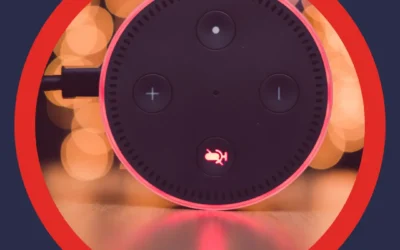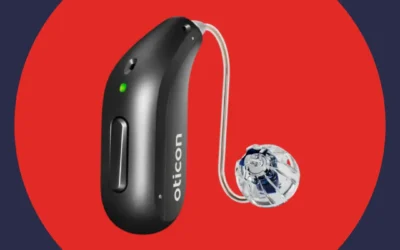Undiagnosed age-related hearing loss affects millions of adults—but many don’t even realize it. Because the condition progresses slowly, the signs often go unnoticed. People adapt gradually, missing critical symptoms until communication and health begin to decline. Left untreated, hearing loss can lead to reduced quality of life, cognitive decline, emotional distress, and even increased safety risks.
What Is Age-Related Hearing Loss?
Age-related hearing loss, or presbycusis, is a gradual loss of hearing that commonly affects both ears. It begins with difficulty hearing high-pitched sounds and progresses over time to include lower frequencies. Many people first notice they cannot understand conversations in busy restaurants or family gatherings. It is one of the most common health conditions affecting older adults, yet it often receives the least attention.
This type of hearing loss occurs due to natural changes in the ear and auditory nerve. As the sensory cells in the inner ear age, they lose their function. This makes sound less clear and harder to interpret, especially in environments with background noise. Genetic factors, chronic disease, and lifelong noise exposure can also contribute to this gradual loss.
Why So Many Adults Ignore the Signs
Many people fail to recognize hearing loss until it becomes severe. This delay can last years, or even decades. Some common reasons include:
- Gradual onset: The slow progression makes it easy to overlook changes.
- Adaptation: People unconsciously read lips or guess words to compensate.
- Stigma: Concerns about aging or looking frail discourage action.
- Lack of screenings: Routine checkups often skip hearing assessments.
- Confusion with other conditions: Hearing loss symptoms resemble those of cognitive issues or depression.
Why Hearing Loss Often Goes Untreated
Even when symptoms are acknowledged, treatment is frequently postponed or avoided. Several barriers keep people from getting help:
- Denial: Many downplay symptoms or blame others for “mumbling.”
- Cost concerns: Hearing aids and evaluations may seem unaffordable without insurance support.
- Limited access: Not all communities have local hearing care providers.
- Negative assumptions: Outdated beliefs about hearing aid performance persist.
- Competing health priorities: Other conditions often overshadow hearing needs.
Early Signs You Might Have Hearing Loss
Recognizing early signs helps prevent further complications. Watch for these indicators:
- Difficulty understanding conversations in noisy places
- Asking people to repeat themselves often
- Turning the volume up louder than others prefer
- Feeling drained after social interactions
- Hearing ringing, buzzing, or whistling sounds
- Missing phone calls or alarms
- Withdrawing from group activities
These signs point to a potential hearing issue. Seeking support early makes a difference.
Get the answer to, “Can you get rid of tinnitus?”
The Hidden Impact of Untreated Hearing Loss
Hearing loss does more than reduce sound clarity. It affects how we function in every aspect of life:
Social and emotional consequences:
- Frustration during conversations
- Reduced confidence and self-esteem
- Social withdrawal and isolation
- Relationship conflicts and misunderstandings
Discover more about how hearing loss affects relationships.
Cognitive consequences:
- Slower information processing
- Reduced mental sharpness
- Greater risk of dementia and Alzheimer’s disease
Physical consequences:
- Balance issues leading to falls
- Missed cues from the environment
- Impaired safety awareness
Daily limitations:
- Challenges in workplaces or volunteer roles
- Trouble following instructions or conversations
- Avoidance of favorite hobbies or gatherings
Hearing Loss and Cognitive Decline
Recent research shows strong links between hearing loss and brain health. Mild hearing loss doubles dementia risk. Moderate loss triples it. Severe loss makes individuals five times more likely to develop dementia. Hearing care reduces mental fatigue and helps preserve memory and focus.
Many cognitive conditions worsen when hearing loss is ignored. Proper diagnosis and treatment improve both hearing and cognitive outcomes. A hearing evaluation should always be part of a comprehensive wellness plan.
The Benefits of Timely Treatment
Treating hearing loss early has wide-ranging advantages for your emotional, physical, and mental health:
- Easier communication and deeper relationships
- Enhanced mental clarity and memory
- Reduced anxiety and mood swings
- Increased social confidence and engagement
- Improved workplace participation and safety
Hearing Aids Help More Than You Think
Modern hearing aids offer life-changing benefits. Today’s technology is advanced, sleek, and effective. Hearing aids now feature:
- Bluetooth connectivity for phones and TVs
- Noise-reduction filters for better focus
- Rechargeable batteries for daily convenience
- Small, discreet designs that fit comfortably
They help your brain process sound efficiently and improve your ability to participate fully in conversations and activities.
Find out the five best hearing aids for noisy environments.
Comprehensive Hearing Care Matters
Effective treatment goes beyond devices. You deserve a customized hearing care plan that includes:
- One-on-one support from a trusted hearing care provider
- Counseling for both patients and family members
- Communication training strategies
- Group or individual rehabilitation services
These support systems increase success with hearing aids and build confidence in everyday situations.
Why Primary Care Isn’t Enough
Primary care physicians play a key role in overall health, but they often lack tools to detect early hearing loss. Many aren’t trained to spot subtle signs. That’s why it’s important to work with a hearing care provider. They can deliver in-depth assessments and provide solutions tailored to your specific hearing needs.
Overcoming Treatment Barriers
We know hearing care can seem overwhelming. That’s why we work to remove common obstacles:
Cost: We assist with insurance benefits and offer easy payment plans.
Stigma: Hearing aids support active, independent lifestyles—not aging.
Access: Our providers offer personalized, convenient care tailored to your lifestyle.
Explore move about Medicare hearing aid coverage.
Protect Your Hearing Now
Age-related hearing loss can’t always be avoided—but you can take steps to preserve hearing:
- Limit exposure to loud environments
- Use hearing protection during noisy tasks
- Keep headphone volume at safe levels
- Take regular breaks from sound exposure
These habits protect your ears and support long-term hearing wellness.
When to Seek Hearing Help
Don’t wait until hearing loss affects your happiness and safety. Early intervention leads to better results. Schedule a hearing evaluation if you notice any signs. A hearing care provider can recommend appropriate solutions and guide your next steps.
Stay Connected—Take the First Step Today
Age-related hearing loss is common but manageable. You don’t have to live with the frustration, confusion, or isolation.Contact American Hearing + Audiology today and schedule a hearing evaluation. Our experienced hearing care providers are here to help you hear clearly, connect fully, and enjoy every moment again.



